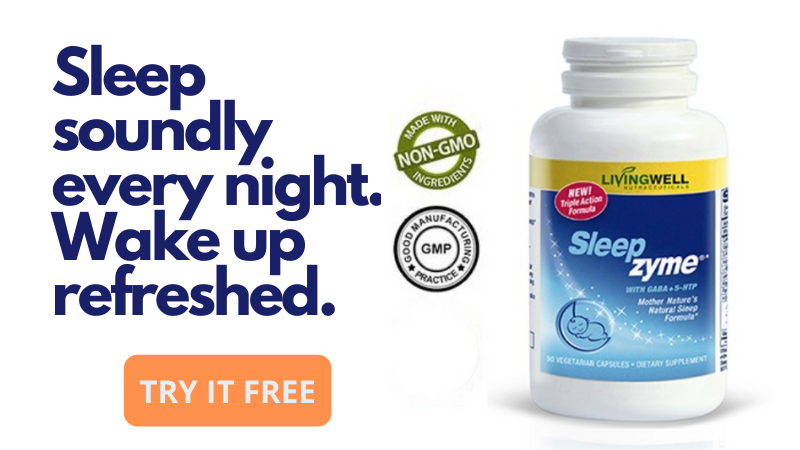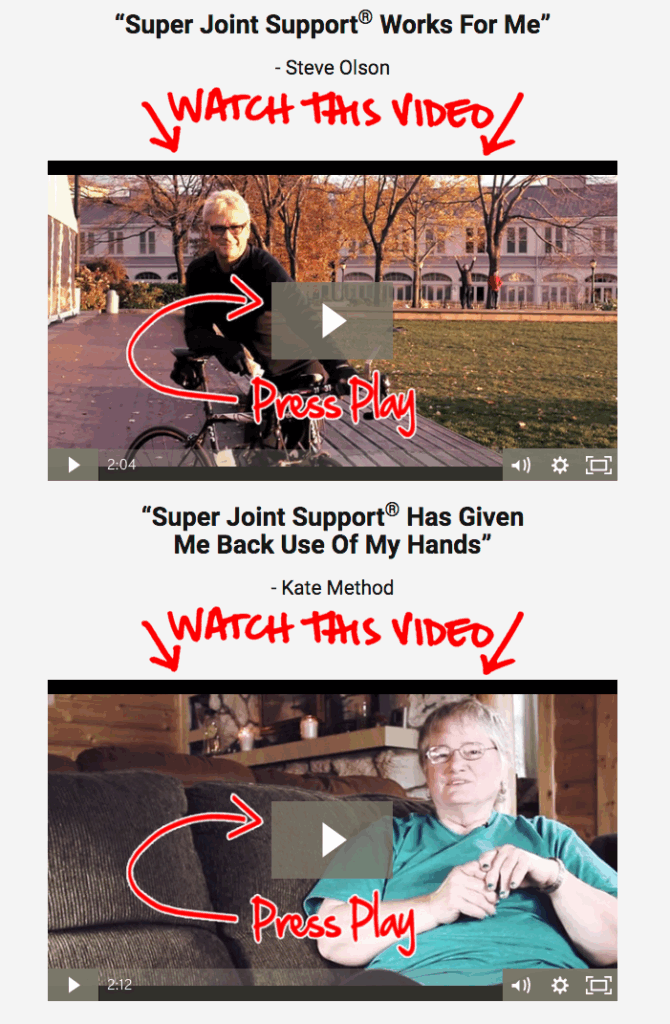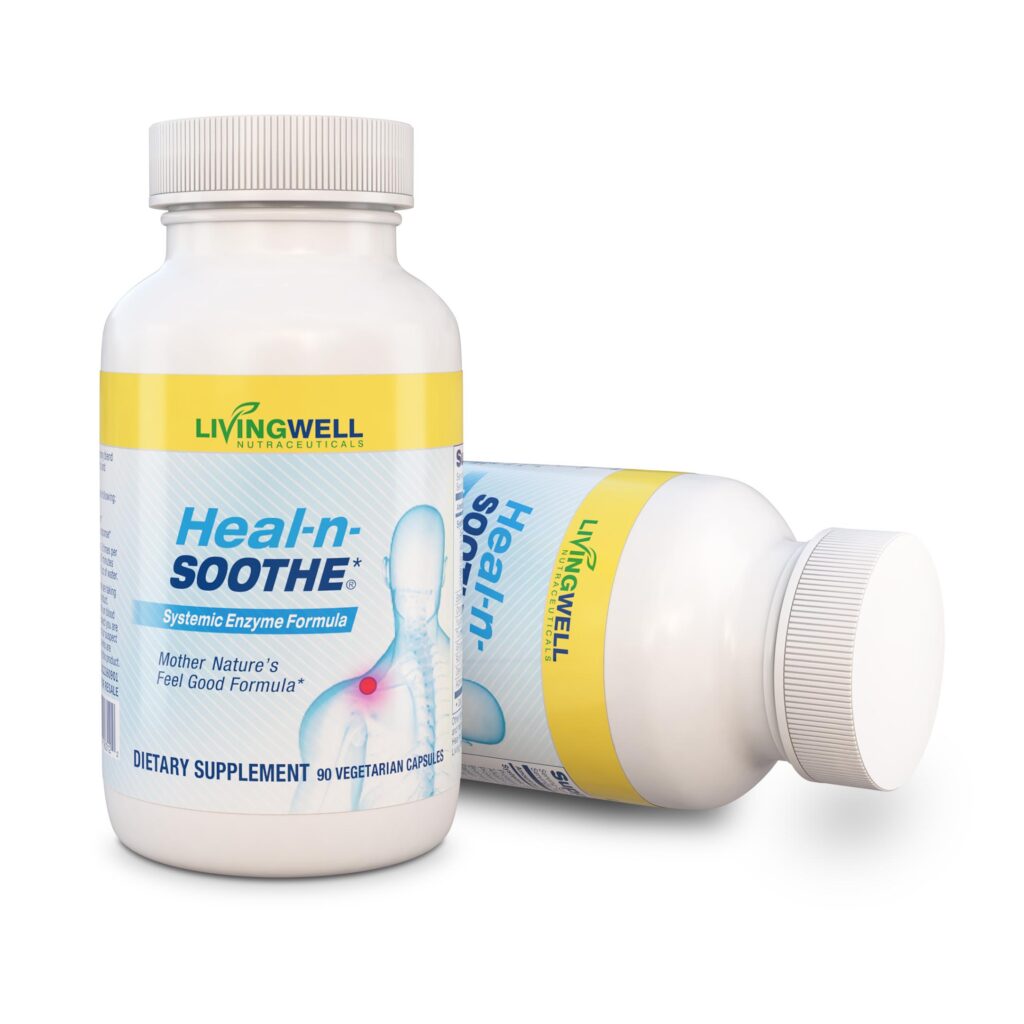If you lie awake all night, and feel tired and cranky every day, it may be time to wake up from your “no-sleep” nightmare!
As many as 70 million Americans are thought to suffer from chronic sleep loss or disorders.
According to the National Institutes of Health, infants need 16-18 hours of sleep each night, children and teenagers need at least nine hours, and most adults need six to eight hours.
A good night’s sleep does more than just make you feel rested…
Sleep deficiencies may lead to: reduced energy and fatigue, accidents and falls, decreased immunity, system infections, irritability and confusion, memory problems, an inability to focus and concentrate, stress, anxiety, and depression.
But if you’re “tired” of tossing and turning, we’ve got some great news!
The following eight methods have been found to safely, effectively, and naturally promote benefits for relaxation and healthy sleep. Good luck and good night!
1. Turn off the T.V.
Your bed is for two things only: sleep and romance. By eliminating all other
activities, you can improve the connection between bed and sleep.
If not, you can end up associating the bed with distracting activities that make it difficult to fall asleep.
In addition, studies shows that those who experienced the most sleep disturbances had televisions in their bedrooms, and used them to fall asleep.
Indeed, a study published in Pediatrics found that among school-age children, having a television in the child’s bedroom contributed to sleep problems.
If you want to improve your sleep habits, you should first improve your sleep environment.
And that means clearing your bedroom of your TV or other distractions, including computers, work materials, and any noises and bright lights. Research also suggests that TVs and computers generate electromagnetic fields (EMFs).
These may disrupt the pineal gland, the source of the hormone melatonin, which regulates the body’s circadian rhythms responsible for maintaining sleep cycles.
Action to Take:
Instead of turning on the TV, read a book! Or, engage in another soothing activity before you drift off.
2. Pillow Talk
We think nothing of spending money to protect and pamper our bodies. Yet we often
go years sleeping on worn-out pillows and mattresses, where we spend a third of our lives!
Often, a new, fresh, higher-quality pillow or mattress may be all that stands between you and peaceful slumber!
It’s advisable to replace your mattress every five to seven years. According to a USA Today study, you should replace your mattress if you notice various signs of wear-and-tear, including: stuffing coming through the seams, craters in the middle, waking up with unexplained aches and pains, or finding that you just don’t sleep well in your bed anymore.
And while a higher-quality mattress may cost a little more, Consumer Reports magazine says no mattress brand, model or type emerges as the best or worst.
Action to Take:
Have you ever considered a memory foam pillow-top? These utilize unique “viscoelastic,” temperature-sensitive materials; this means that they conform to your body’s unique shape, and then return to their original shape after you get up. As a result, pressure on your body is relieved.
3. Get a “Natural” Buzz
Here’s some information that may give you a “jolt!” Countless studies have demonstrated a direct link between consuming caffeine — coffee, tea, soda, etc. — and problems falling asleep.
Caffeine, especially when consumed later in the day, may keep you awake longer. This makes you get up more throughout the night, and cuts down on the amount of sleep you get, especially the crucial restorative stages of sleep.
And with less of this restorative sleep, your alertness and overall health is reduced the following day. So of course, you need more caffeine to function properly… Is there any way off of this exhausting merry-go-round?
Well, yes, and you don’t even have to give up your precious caffeine! Experts agree that as long as you avoid caffeine at least 10-12 hours before bedtime, you’ll sleep better. And maybe you’ll even drink more non-caffeinated beverages, like water!
Action to Take:
For an all-natural energy-booster, try taking a vitamin B-12 supplement. A study published in the British Journal of Nutrition shows that this antioxidant is vital for energy production. B12 may also help to metabolize carbohydrates, fat and proteins, and promote healthy growth, and cardiovascular and neurological health
4. Lullabies and Other Tunes
When you’re trying to drift off, a soothing tune is the perfect accompaniment. Listening to relaxing music signals your mind and body that it’s time to slow down and
sleep.
A Journal of Advanced Nursing study found that soothing music had a very positive effect on the sleeping habits of elderly adults.
So dim the lights and throw on some slow jazz, or purchase a “relaxing sounds” CD. It may be just the thing to make an evening of peaceful sleep a reality!
Action to Take:
As part of your personalized “Lose the Back Pain System” program, you’ll receive three exclusive “The Sleep” Audio CDs. These CDs provide you with vital information and lifestyle tips, including how to use and receive quick and effective relief. And, these CDs are an excellent alternative to television.
5. Successful Sleep Rituals
Here’s a little-known truth: your mind AND your body are required for a good night’s sleep! It’s all about establishing “mind-body techniques.”
You see, at the end of a hectic day, your brain and body need to unwind before sleep can occur.
That’s why you need to establish bedtime “rituals”; take a bath, meditate, do some easy stretches or yoga — anything that lets the stress and chaos of the day melt away.
You should perform your “ritual” in the same way, in the same place, and at the same time each night. This repetition triggers your mind and body that it’s time to relax and sleep.
But you also need to eliminate negative activities or items, which are associated with sleeplessness. For example, if looking at a bedroom clock makes you anxious about how long you have until you must get up, move the clock out of sight. Do not engage in activities make you anxious and prevent sleep.
Action to Take:
While lying in bed, try counting from 100 to 0. This simple, yet effective bedtime ritual has a pretty good chance of helping you fall asleep!
6. Pins and Needles
For more than 3,500 years, acupuncture has proven its success for overcoming
sleeplessness. Multiple clinical studies found that acupuncture may provide relief for insomnia.
This technique involves inserting and manipulating thread-like needles into hundreds of “acupuncture points” on the body. These manipulations can reap sensations elsewhere on the body, and may promote various health benefits.
These include the relief of low back pain, nausea and vomiting, headaches, and osteoarthritis.
Action to Take:
Consider an acupuncture house call — you can schedule an appointment in the comfort of your home!
7. Try Stimulus-Control Therapy
This may be the BEST trick to combat insomnia! It all boils down to reestablishing your bed as the place where sleep happens, and NOT the site of sleeplessness.
It’s thought that insomniacs develop negative associations between their sleep environments and sleep itself.
The Lancet published a study that found stimulus control to be an effective method for conditioned aspects of insomnia associated with long-term sleep improvement.
And it makes sense: if you lie awake in the dark, you’re probably going to think of your bed negatively.
You’ll associate even getting into bed with sleeplessness. This is why many people have no trouble relaxing and sleeping on their sofas or in their favorite recliners, but not in their own beds!
Action to Take:
Here is how stimulus-control therapy for insomnia works:
1. Go to bed only when sleepy
2. Allow yourself 15 – 20 minutes to fall asleep
3. If not asleep within 15 – 20 minutes, get out of bed, go to another room, and engage in a sedentary activity (e.g., reading) until you feel sleepy
4. Repeat steps 1 – 3 as often as necessary
5. Get up at the same time each morning, even if you had a difficult night
8. Sleep Well, Naturally
If sleep escapes you, you may turn to prescription/over-the-counter
sleep aids. But while these may bring on sleep, they’ll also make you really groggy the next day.
These medications only treat the symptoms, and not the causes of sleeplessness. They may have harmful side effects, and can’t be taken long-term, as they may be addictive.
Natural sleep aids may be your best option. At The Healthy Back Institute, we realized that the existing products just didn’t do the trick.
And as so many of our customers suffering from back pain also have trouble sleeping, we’ve spent the past two years testing and researching different products with some of the worlds’ leading natural medicine experts.
We’ve formulated a natural sleep aid called Sleepzyme that includes the most effective combination of sleep aid ingredients.
For a limited time you can try Sleepzyme for free. Click here to start your trial today.
Read more:
A GROSS Reason Not to Make Your Bed in the Morning










I was not able to work! Heal and sooth and the rub on relief and the joint formula are working great! I put 100% in this! It works, increase dosage!
Steven, thank you for the encouraging words and glad you are finding relief.
Steve HBI-Staff